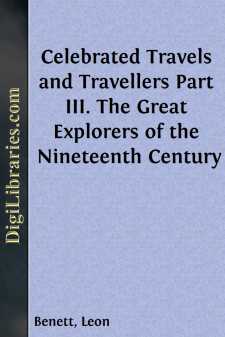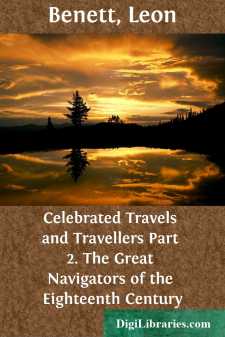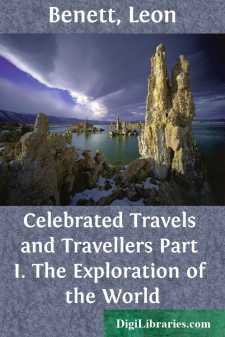Categories
- Antiques & Collectibles 13
- Architecture 36
- Art 48
- Bibles 22
- Biography & Autobiography 813
- Body, Mind & Spirit 142
- Business & Economics 28
- Children's Books 16
- Children's Fiction 13
- Computers 4
- Cooking 94
- Crafts & Hobbies 4
- Drama 346
- Education 46
- Family & Relationships 57
- Fiction 11829
- Games 19
- Gardening 17
- Health & Fitness 34
- History 1377
- House & Home 1
- Humor 147
- Juvenile Fiction 1873
- Juvenile Nonfiction 202
- Language Arts & Disciplines 88
- Law 16
- Literary Collections 686
- Literary Criticism 179
- Mathematics 13
- Medical 41
- Music 40
- Nature 179
- Non-Classifiable 1768
- Performing Arts 7
- Periodicals 1453
- Philosophy 64
- Photography 2
- Poetry 896
- Political Science 203
- Psychology 42
- Reference 154
- Religion 513
- Science 126
- Self-Help 84
- Social Science 81
- Sports & Recreation 34
- Study Aids 3
- Technology & Engineering 59
- Transportation 23
- Travel 463
- True Crime 29
Celebrated Travels and Travellers Part III. The Great Explorers of the Nineteenth Century
by: Leon Benett
Categories:
Description:
Excerpt
CHAPTER I.
THE DAWN OF A CENTURY OF DISCOVERY.Slackness of discovery during the struggles of the Republic and Empire—Seetzen's voyages in Syria and Palestine—Hauran and the circumnavigation of the Dead Sea—Decapolis—Journey in Arabia—Burckhardt in Syria—Expeditions in Nubia upon the two branches of the Nile—Pilgrimage to Mecca and Medina—The English in India—Webb at the Source of the Ganges—Narrative of a journey in the Punjab—Christie and Pottinger in Scinde—The same explorers cross Beluchistan into Persia—Elphinstone in Afghanistan—Persia according to Gardane, A. Dupré, Morier, Macdonald-Kinneir, Price, and Ouseley—Guldenstædt and Klaproth in the Caucasus—Lewis and Clarke in the Rocky Mountains—Raffles in Sumatra and Java.A sensible diminution in geographical discovery marks the close of the eighteenth and the beginning of the nineteenth centuries.
We have already noticed the organization of the Expedition sent in search of La Pérouse by the French Republic, and also Captain Baudin's important cruise along the Australian coasts. These are the only instances in which the unrestrained passions and fratricidal struggles of the French nation allowed the government to exhibit interest in geography, a science which is especially favoured by the French.
At a later period, Bonaparte consulted several savants and distinguished artists, and the materials for that grand undertaking which first gave an idea (incomplete though it was) of the ancient civilization of the land of the Pharaohs, were collected together. But when Bonaparte had completely given place to Napoleon, the egotistical monarch, sacrificing all else to his ruling passion for war, would no longer listen to explorations, voyages, or possible discoveries. They represented money and men stolen from him; and his expenditure of those materials was far too great to allow of such futile waste. This was clearly shown, when he ceded the last remnants of French colonial rule in America to the United States for a few millions.
Happily other nations were not oppressed by the same iron hand. Absorbed although they might be in their struggle with France, they could still find volunteers to extend the range of geographical science, to establish archæology upon scientific bases, and to prosecute linguistic and ethnographical enterprise.
The learned geographer Malte-Brun, in an article published by him in the "Nouvelles Annales des Voyages" in 1817, gives a minute account of the condition of French geographical knowledge at the beginning of the nineteenth century, and of the many desiderata of that science. He reviews the progress already made in navigation, astronomy, and languages. The India Company, far from concealing its discoveries, as jealousy had induced the Hudson Bay Company to do, founded academies, published memoirs, and encouraged travellers.
War itself was utilized, for the French army gathered a store of precious material in Egypt. We shall shortly see how emulation spread among the various nations....




